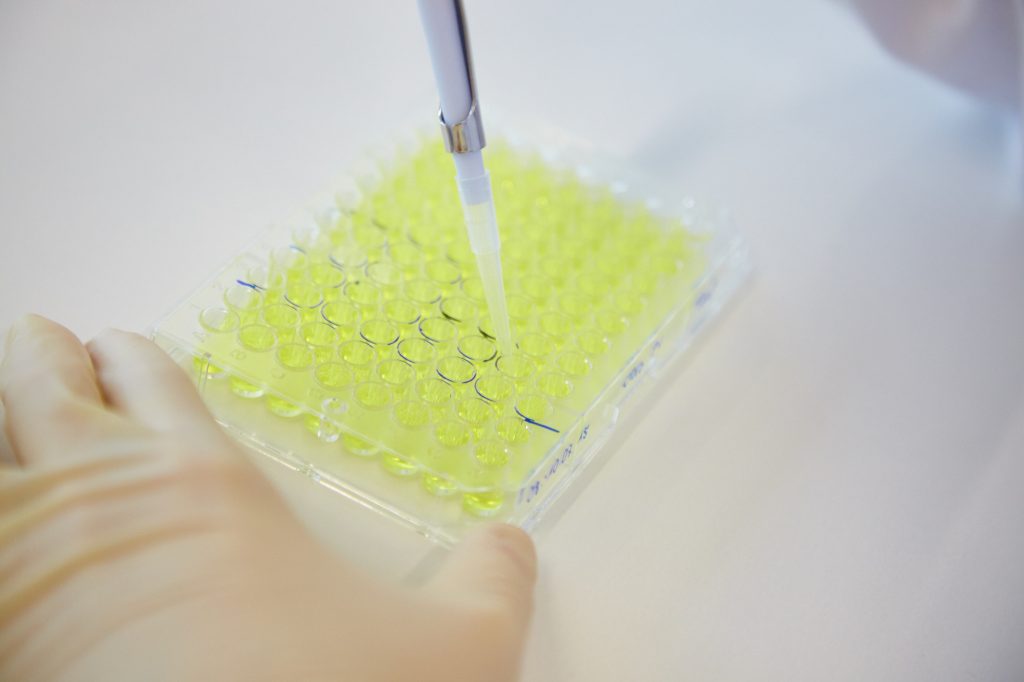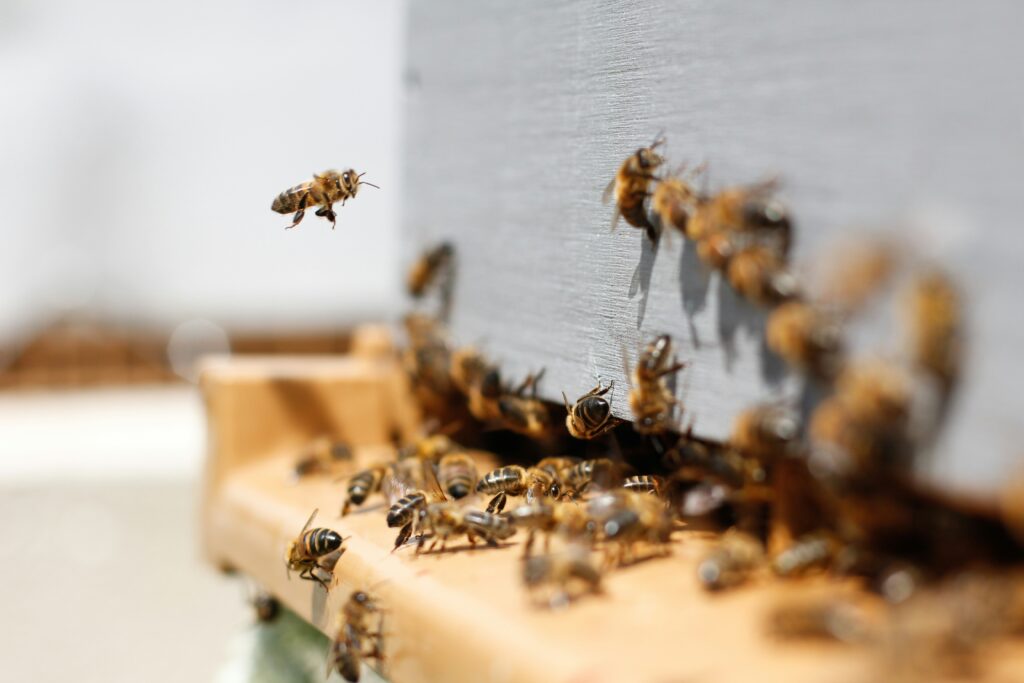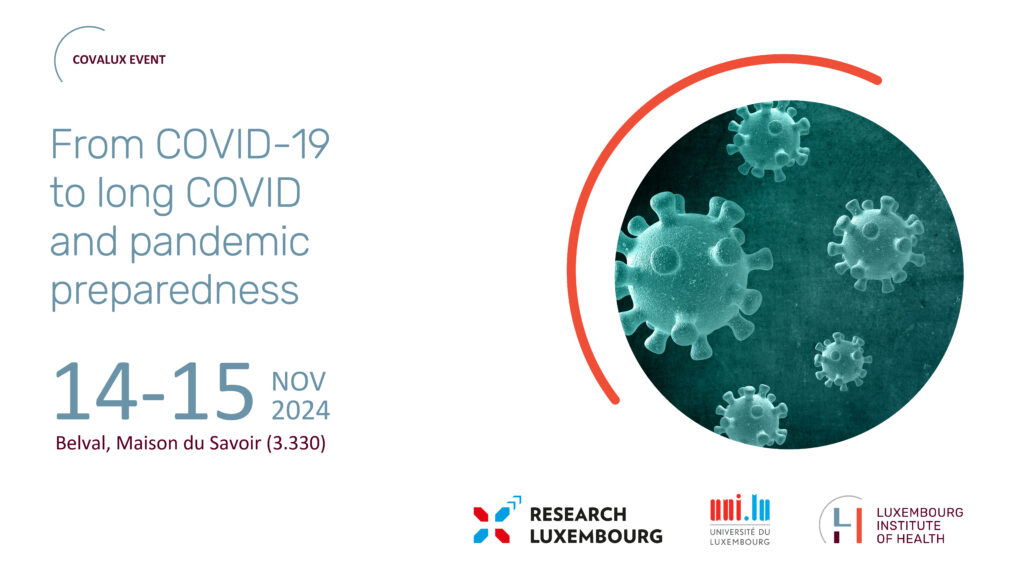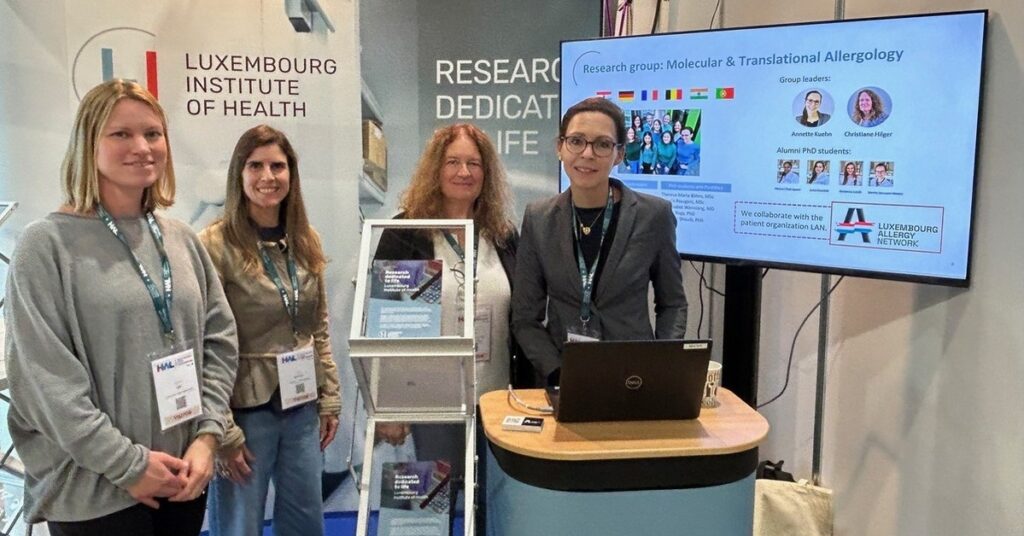News
LIH scientists triumph at the 2023 FNR awards
2023 Outstanding Scientific Achievement presented to researchers of the Department of Infection and Immunity

At the 2023 FNR Awards, the group of Immuno-Pharmacology and Interactomics at the Luxembourg Institute of Health were awarded the Outstanding Scientific Achievement award for their ground-breaking work focusing on a novel opioid receptor, ACKR3, with the potential to reshape opioid-related disorder treatment. Dr Jonathan Turner was runner-up for the FNR Outstanding Mentor award, underscoring the vital role of mentorship in advancing scientific knowledge.
On October 19, 2023, the Luxembourg National Research Fund (FNR) held its annual FNR Awards ceremony, a prestigious event in the scientific community that has been recognizing remarkable researchers and science communicators since 2009. Luxembourg Institute of Health Dr Andy Chevigne and Dr Martyna Szpakowska of the Immune-pharmacology and Interactomics group of the department of Infection and Immunity, along with Dr Max Meyrath and Ms Christie Palmer, were the deserving recipient of the FNR award for their ground-breaking work in the realm of pain management. The ‘Outstanding Scientific Achievement’ award was introduced in 2021, when the FNR consolidated the ‘Research-Driven Innovation’ and ‘Science Publication’ categories into a new, more comprehensive category: thus, the focus shifted from individual scientific outputs to research projects that significantly impact a scientific field. The research group co-led by Dr Chevigne’s and Dr Szpakowska spans five years and centres on a revolutionary discovery: a new receptor within the opioid system with a potential to transform the treatment of opioid-related disorders.
One of the most pertinent aspects of the team’s research is the identification of a novel receptor for opioid peptides known as ACKR3. ACKR3 is a “scavenger receptor” that restricts the availability of natural analgesic opioid peptides for the classical opioid receptors. This discovery carries profound implications for pain management. The opioid system, vital in regulating pain, reward, and emotional behaviour, primarily relies on four classical opioid-peptide-binding receptors, with the mu receptor being a key target for widely prescribed painkillers like morphine, oxycodone, and fentanyl.
These painkillers, while effective in managing acute pain and providing palliative care in cancer, are plagued by severe side effects, including dependence and respiratory depression, leading to overdoses and fatalities. This has contributed to the ongoing opioid crisis, necessitating the development of new analgesic drugs with reduced complications and different mechanisms of action for chronic pain treatment.
The work led by Dr Chevigne and Dr Szpakowska offers a promising solution: By modulating ACKR3 and inhibiting its scavenging function, opioid peptide levels can be restored, thereby enhancing their natural beneficial effects. In a separate study, ACKR3 was identified as the target of a natural analgesic known as conolidine, which has been utilized in traditional Asian medicine. But their research expands beyond ACKR3, suggesting that several other receptors activated by endogenous opioid peptides have the potential to influence opioid-driven effects and biology. These unconventional actors in the opioid system present alternative targets for the development of safer therapeutic strategies for opioid-related disorders.
“Our findings have the potential to reshape the approaches to treat opioid-related disorders, such as depression or chronic pain by developing drugs with reduced side effects,” commented Dr Szpakowska.
We were delighted to receive this prestigious award, which acknowledges several years of team’s research supported by the FNR. This research represents a significant breakthrough that promises to address a critical issue in modern healthcare. Our team’s achievement is not merely an acknowledgment of our work but also a testament to the power of innovative scientific research that has the potential to change lives for the better.
concluded Dr Chevigne
Later, LIH Dr Jonathan Turner, group leader of the Immune Endocrine and Epigenetics team within the Department of Infection and Immunity’s, was shortlisted for the prestigious FNR Outstanding Mentor award. It’s worth noting that the Outstanding Mentor category was introduced in 2021, underscoring the FNR’s commitment to recognizing exceptional mentorship, an often underestimated facet of research.
“Mentorship plays a pivotal role in nurturing the next generation of scientists, guiding their journey, and instilling in them the values of scientific rigor and excellence. It is through effective mentorship that we ensure the continued advancement of knowledge and innovation,” explained Dr Turner. “I am humbled to have been amongst the finalists and wish to thank all those who nominated me, as this achievement is a testament to the dedication of my fellow researchers.“







